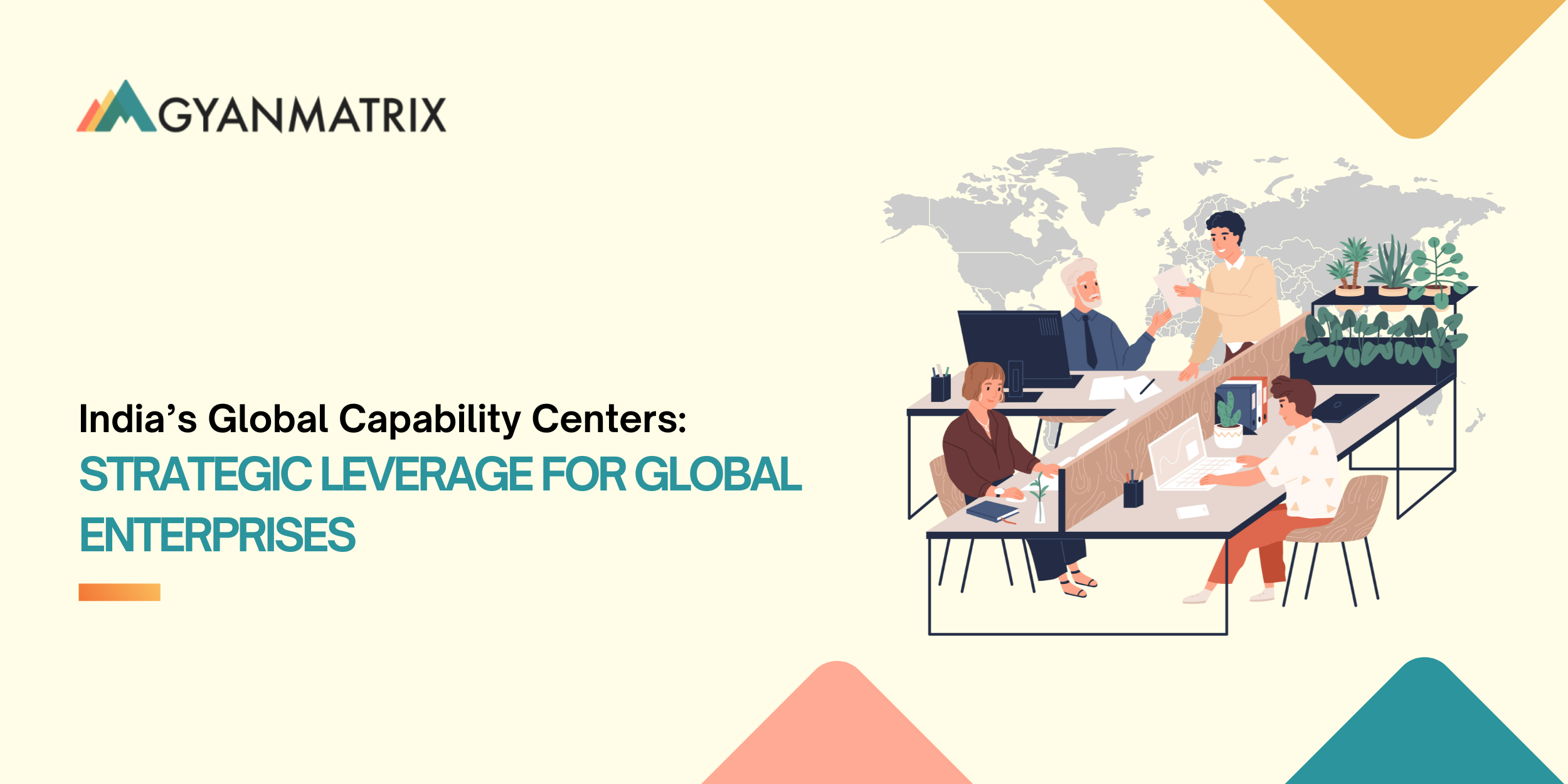Global Capability Center India: Strategic Growth Engine for Global Enterprises
Executive Summary
Global Capability Center India is evolving far beyond traditional offshore service models into sophisticated engines of enterprise innovation and transformation. With over 1,500 GCCs employing more than 1.66 million professionals, India represents a high-value proposition for global businesses aiming to scale efficiently, drive digital transformation, and establish long-term competitive advantage.
This article provides business leaders with a forward-looking analysis of the capabilities, strategic value, and emerging trends associated with India’s GCC ecosystem—equipping decision-makers with actionable insights to unlock growth, resilience, and operational agility.
Strategic Rationale for Choosing India
1. Talent Density and Depth
India offers a deep, scalable, and continuously evolving talent pool that aligns with enterprise-grade demands:
Over 1.5 million STEM graduates annually enable long-term workforce sustainability. Presence of domain-specific experts across BFSI, retail, healthcare, manufacturing, and telecom sectors. Accelerated upskilling in AI, GenAI, cybersecurity, advanced analytics, and cloud infrastructure, supported by both academia and private sector investments. Increasing collaboration with global universities and think tanks to cultivate next-gen digital leadership and deep tech skills.
2. Shift from Support to Strategy
Modern GCCs in India are no longer transactional units. They now serve as strategic co-innovation partners with enterprise leadership, owning:
- Product and platform development
- Customer experience transformation
- Business model innovation
- Enterprise data strategy and analytics frameworks
These centers are playing a central role in shaping roadmaps for digital innovation and leading agile transformation across business units. For example, many GCCs now have CXO-level leadership embedded within their India operations to align delivery with global priorities.
3. Cost-Effective Scalability with High Impact
While cost remains a baseline benefit, the focus has shifted to value creation at scale:
30-50% cost advantage vs. onshore operations, while maintaining high-quality delivery. Superior ROI through consolidated centers driving multi-functional synergy (engineering, data science, risk, compliance). Enhanced agility in scaling cross-functional teams across business units. Reduction in operational fragmentation through integrated delivery models, improving overall time-to-value.
4. Robust Innovation Ecosystem
India’s digital and entrepreneurial ecosystem creates a unique advantage:
Proximity to over 80 unicorns and 60,000+ startups, fueling co-innovation. Thriving partnerships with global hyperscalers (AWS, Azure, GCP). Access to a fast-growing network of Centers of Excellence (CoEs) across AI, cloud-native development, cybersecurity, blockchain, and quantum computing. Deepening government-industry-academia collaboration under national innovation missions, supporting rapid experimentation and prototyping
Trends Redefining GCC Value Proposition
• AI-First GCCs
The next generation of GCCs are transitioning to AI-first organizations. GCCs are building and deploying LLMs, AI-based decisioning systems, and autonomous operations layers that are embedded into enterprise-wide strategies. These centers now act as the AI engines of large enterprises, owning model lifecycle management, responsible AI governance, and continuous model training pipelines.
• Decentralized Operating Models
Enterprise GCCs are adopting hub-and-spoke models by extending footprints into Tier-2 and Tier-3 cities, creating micro hubs that increase geographic flexibility and cost leverage without compromising delivery quality. This enables:
- Risk diversification
- Talent localization
- Increased workforce diversity and business continuity
• Outcome-Based Delivery Models
GCC KPIs are being realigned with business impact: revenue enablement, CX transformation, digital maturity, and ESG compliance metrics. Boards and CXOs are increasingly evaluating GCC performance through:
- Reduction in time-to-market
- Customer retention and NPS uplift
- Automation-led OPEX optimization
- Impact on sustainability and compliance goals
• Strategic Risk Diversification
Given geopolitical tensions and supply chain vulnerabilities, India provides a relatively stable macro environment and regulatory landscape, positioning it as a risk-diversified alternative to other emerging markets. Regulatory advancements in data privacy, cybersecurity, and taxation frameworks further add predictability and investor confidence.
Business Implications
For global CXOs, India’s GCC ecosystem represents a strategic lever to:
Accelerate enterprise-wide digital transformation. Drive intelligent automation and scalable AI integration. Reduce operational risk while enhancing customer value delivery. Enable rapid product and platform innovation at lower cost. Build enterprise-wide resilience by embedding innovation in every layer of operations.
By acting as transformation hubs, GCCs are empowering organizations to unlock new revenue streams, localize global products, and embed agility in global supply chains.
Conclusion
India’s GCCs have transcended the traditional offshoring paradigm. Today, they serve as critical enablers of enterprise agility, resilience, and innovation. For business leaders seeking to future-proof their global operations, India offers not just capacity, but capability—and more importantly, strategic co-ownership of outcomes.
Organizations that embed their GCCs into global strategy are positioned not only to thrive in the digital economy but to lead it.
Is your organization leveraging India’s GCC capabilities as a strategic asset? The time to capitalize is now.
Ready to transform your global operations with a strategic GCC in India?
Contact us today to explore a customised GCC strategy aligned with your enterprise vision.
Cybersecurity in 2025: Strategies for Staying Ahead of AI-Powered Threats
In 2025, the cybersecurity landscape is more complex than ever. The rise of AI-powered ...
How Generative AI is Reshaping Custom Software Development
Generative AI has moved beyond the hype and is now becoming a transformational force in ...
From Legacy to Cloud-Native: A Roadmap for Digital Transformation
In today’s hyper-competitive digital world, businesses cannot afford to be slowed down by rigid, outdated ...
AI‑Powered Personalization in Custom Apps: Real‑World Use Cases for 2025
In today’s fast-moving digital landscape, personalization is no longer a luxury—it’s a user expectation. ...
Agentic AI: Empowering the Next Generation of Smart Enterprises
In today’s rapidly evolving digital world, organizations are no longer just competing on products or ...
Latest Trends Followed by Mobile App Development Companies in 2025
Introduction The mobile app development industry is evolving at lightning speed, driven by user demands, ...








